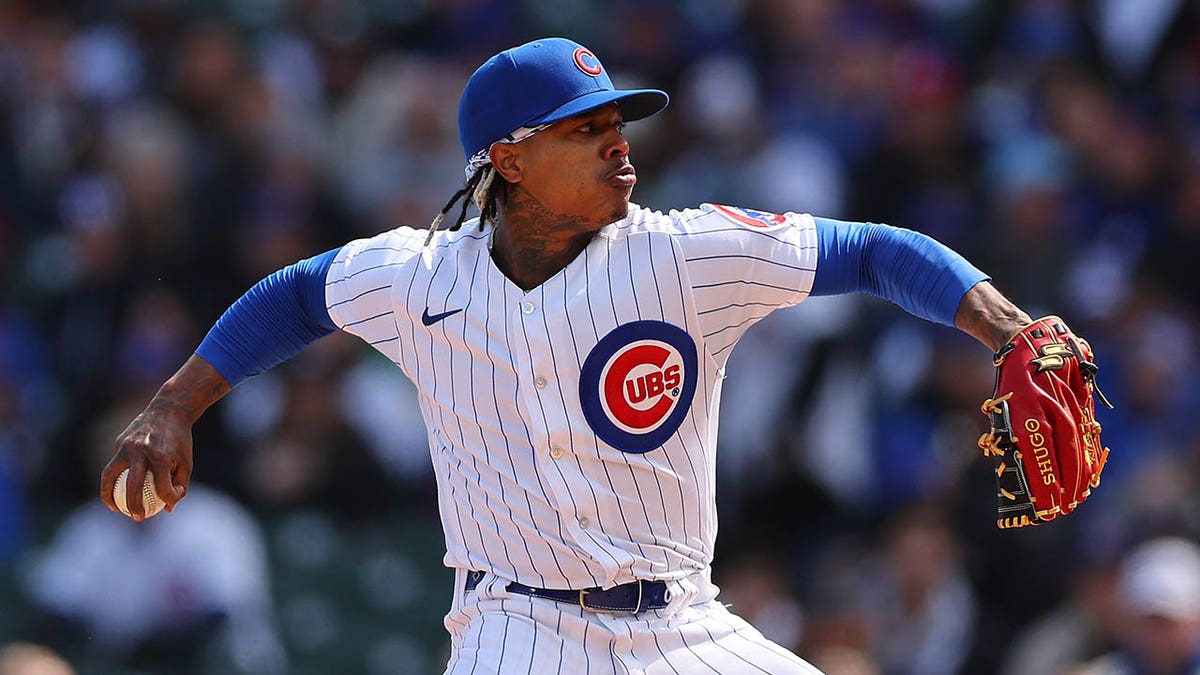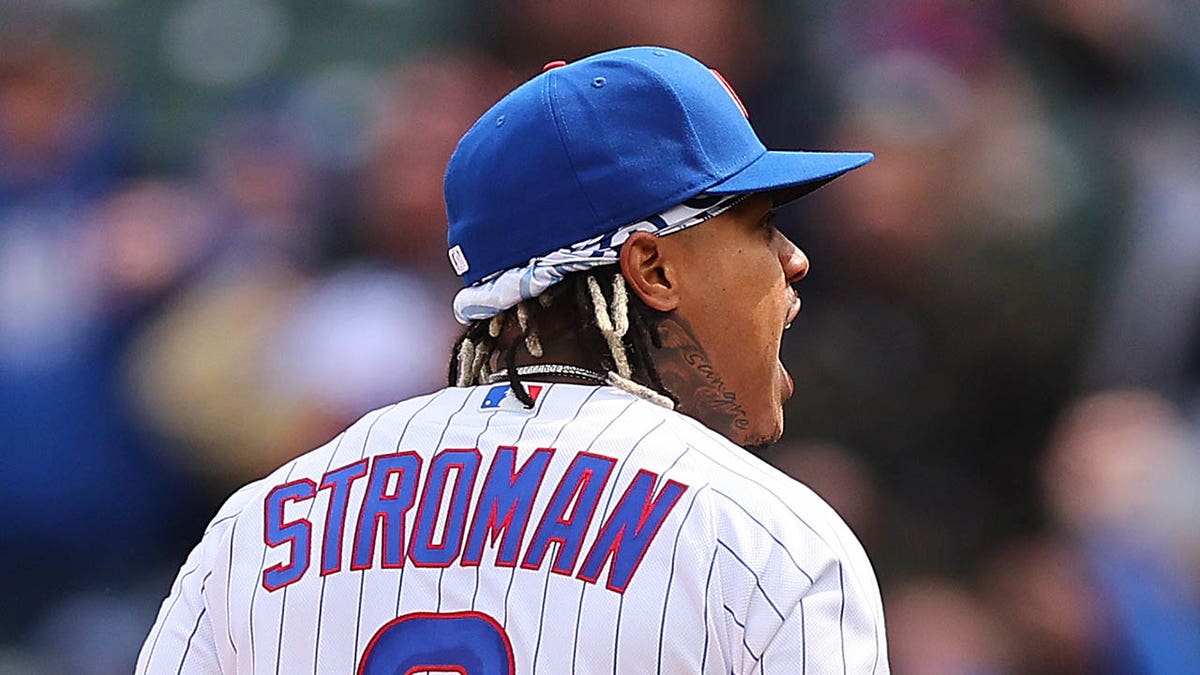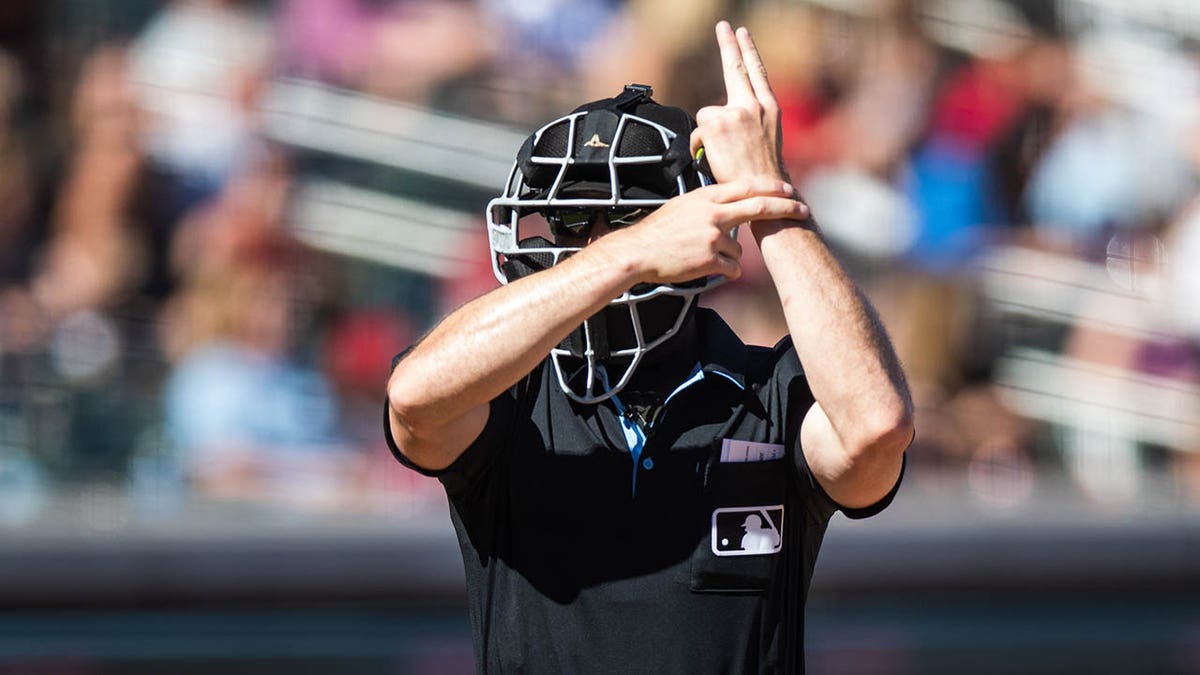Fox News Flash top sports headlines for March 30
Fox News Flash top sports headlines are here. Check out what's clicking on Foxnews.com.
The new era of baseball is officially underway, and Marcus Stroman is now the answer to a trivia question.
Major League Baseball has a pitch clock after several years of minor league experimentation. Pitchers have 15 seconds to deliver a pitch, 20 seconds with runners on base.
The Chicago Cubs pitcher was called for MLB's first regular-season pitch clock violation.
CLICK HERE FOR MORE SPORTS COVERAGE ON FOXNEWS.COM

Marcus Stroman of the Chicago Cubs delivers a pitch during the first inning against the Milwaukee Brewers at Wrigley Field March 30, 2023, in Chicago. (Michael Reaves/Getty Images)
With a runner on second base, Stroman exhausted 20 seconds before starting his motion, and he still didn't get his pitch off on time.
With Christian Yelich at the plate, Stroman came set, looked and stared at second. Then, he looked back to to plate, and the home plate umpire called the violation, resulting in a ball, evening the count at 2-2.
Batters have eight seconds to be "alert" in the batter's box. Manny Machado was the first violator in the spring as he took his time getting back in the batter's box. He acknowledged the rule would take some getting used to.

Marcus Stroman of the Chicago Cubs reacts during the third inning against the Milwaukee Brewers at Wrigley Field March 30, 2023, in Chicago. (Michael Reaves/Getty Images)
The new rules are aimed at speeding up the pace of play and creating more action on the base paths with walks, strikeouts and home runs and batter fidgeting increasing over the years.
MLB OPENING DAY: THREE MAJOR RULE CHANGES FOR THE 2023 SEASON
"Our research showed that the game had evolved and changed in a way that fans didn't like, and we decided it was time to intervene, to make sure we put the best form of baseball on the field," MLB commissioner Rob Manfred said this week.
The pitch clock has done exactly what it was intended to do. Spring training games were 26 minutes shorter this year than in 2022. The average regular-season nine-inning MLB game last year took three hours, three minutes. The previous year it was 3:10, the longest ever.

Umpire Matt Brown signals for a pitch clock violation during a spring training game between the Arizona Diamondbacks and the Colorado Rockies at Salt River Fields at Talking Stick March 12, 2023, in Scottsdale, Ariz. (John E. Moore III/Getty Images)
CLICK HERE TO GET THE FOX NEWS APP
The Yankees-Giants game on opening day wrapped up in 2:33 with just one pitch clock violation. Over a full season, that time would mark the fastest average in 43 years.










































